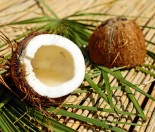Over 2000 years ago, Hippocrates, the father of modern medicine, said ‘All disease begins in the gut’. This is as true today as it was then. When our digestion is less than optimal it can cause all manner of discomfort and suffering. Read on to find out more about Gut Dysbiosis.
A healthy digestive tract allows for absorption of essential nutrients and provides an impermeable barrier to block out toxins. One of the keys to good digestive health is the two to three kilograms of bacteria (microflora) which reside in the human gut. Our microflora comprise a highly organised world where certain species of bacteria need to predominate to keep us healthy – both physically and mentally.
These beneficial gut inhabitants carry out a number of critical functions including: nourishing the cells which line the intestines, maintaining gut integrity, manufacturing vitamins and amino acids, neutralising toxins and heavy metals and supporting the immune system (80% of which to be found lining the digestive system!) As well as ensuring that we get all the goodies out of what we eat, one of the most important functions of these friendly bacteria is controlling an estimated 500 different species of non-friendly (pathogenic) and opportunistic bacteria and yeasts in our gut.
Gut Dysbiosis – What is it?
‘Gut dysbiosis’ is a term which describes the breakdown of the balance of protective and harmful microorganisms. A loss of these protective bacteria makes space for colonisation by undesirable bacteria and yeasts such as Clostridium difficile, Streptococcus, Candida albicans and nonbeneficial E Coli.
Some factors involved in the development of gut dysbiosis include: antibiotics, stress, and decreased stomach acid, use of antacids, digestive enzyme deficiency, heavy metal toxicity, and diets high in sugar, refined carbohydrates or alcohol.
Symptoms of Gut Dysbiosis
Alterations in the normal balance of this internal population manifests a very wide range of symptoms, creating allergies or intolerances and affecting digestion, immunity, energy levels, brain function and mood.
A loss of beneficial gut microflora results in digestive tract itself becoming poorly nourished and unable to produce the enzymes needed for proper digestion. The result of this can be fermentation, causing bloating, pain, flatulence, constipation and/or diarrhoea. Impaired digestion for extended periods of time can also create nutritional deficiencies. Common deficiencies in gut dysbiosis include: amino acids (proteins), important minerals such as calcium, magnesium, iron and zinc, as well as vitamin from the B-groups as well as A, D & E (important for immunity).
Keeping the right balance of bugs is very important for preventing ‘leaky gut’. When this situation arises, poorly digested food proteins and bacterial toxins to enter the blood stream causing the immune system to release inflammatory chemicals which, in a vicious cycle, causes further leaky gut. “Leaked” food particles may also trigger food allergies or intolerances. Symptoms of food allergies/intolerances are multitude but include hives, eczema, asthma, hyperactivity, mood disorders as well as problems with learning or concentration, to name a few.
This all ultimately increases demand on the liver, the body’s primary organ of detoxification. An overburdened liver can show up as headaches, fatigue, night waking between 2 and 3am, constipation, skin or hormonal problems, as well as lowered tolerance to odours and/or fatty foods.
Can We Have Too Many Bowel Bacteria?
In a word, “yes”. Abnormally overgrowth of normal bacteria creates an excess. Too much (or many) of a good thing, they eat our food and make by-products that cause symptoms like bloating, pain and diarrhoea, malabsorption, weight loss and malnutrition as well as having detrimental effects on brain function and triggering a range of other symptoms, including those commonly associated with fibromyalgia and rosacea.
Candida Albicans
Candida albicans is worth a special mention. When given the opportunity to proliferate (such as commonly happens due to antibiotic therapy), this normally harmless resident yeast can transform into a havoc-wreaking undesirable with the ability to pierce the walls of the digestive tract and spread. Feedings on carbohydrates and sugars, Candida produces alcohol as a by-product, which seems to be responsible for a range of mental symptoms.
An overgrowth of Candida can manifest as vaginal or oral thrush, migraines, sugar cravings, ‘silly’ giggly behaviour in children, depression, ‘brain fog’ and fatigue.
Conditions Associated with Gut Dysbiosis
The phrase ‘death begins in the colon’ is credited to Nobel Prize-winning biologist Elie Metchnikoff (1845- 1916), who proposed that many diseases were triggered by the toxic by-products of the bowel bacteria.
Conditions associated with gut dysbiosis are growing almost daily as new research confirms the links. So far the list includes irritable bowel Syndrome (IBS), infantile colic, Crohns disease, ulcerative colitis (both IBD’s), coeliac disease, rheumatoid arthritis (RA), Multiple Sclerosis (MS), ankylosing spondylitis, chronic fatigue syndrome (CFS), Schizophrenia, bipolar disorder and autism spectrum disorders, including dyslexia, dyspraxia and attention deficit hyperactivity disorder (ADHD).
Gut Dysbiosis: What Can You Do?
Correction of gut dysbiosis can take a variable length of time – anywhere between 1 and 3 months – and is not easy without the guidance and supervision of a suitably qualified health care professional, who will create a program specifically for you. It can be fairly intensive for the first 4 – 6 weeks. Once the leaky gut and bowel flora balance has been addressed, many of the chronic symptoms will start to improve or disappear and the stage is set for further interventions to support the return of great health.
Antimicrobial Treatments
Antimicrobial agents are an important aspect to a gut dysbiosis programme. Some herbs and essential oils which have effective antimicrobial action include: olive leaf, grapefruit seed extract, oregano oil, aniseed oil, andrographis. Your Naturopath can advise the best antimicrobial agent for you.
Testing
Your Naturopath may recommend a range of nutritional tests to assess you for nutrient deficiencies. A comprehensive test of your stool may be useful to verify an excess of either beneficial or non-beneficial microbes in the gut. Knowing exactly what is residing in the gut can take a lot of the guesswork out of treatment and can give a baseline by which to measure progress or effectiveness of your treatment plan.
Probiotics
Your Naturopath may also recommend a specific probiotic powder or capsule with good gut bacteria such as Lactobacillus, Bifidobacteria and other specific organisms. Probiotics help restore balance in the intestines and speed the reduction of symptoms. It is important to be aware that if any probiotic causes a worsening of your symptoms stop taking them and notify your health care practitioner.
Diet
Avoid problematic foods, especially sugars and refined carbohydrates (such as white flour, white rice and pasta) and increase nourishing and healing foods, such as “bone broths” (such as chicken stock made from boiling up the carcass for hours). This contains a number of nutrients to nourish and help heal the gut. Including fermented foods such as sauerkraut (pickled cabbage), kefir, miso, tempeh and properly cultured yoghurt in your diet will also help repopulate the gut. A recent addition to this list is fermented coconut kefir. Even our ancestors instinctively understood the health-giving properties of fermented foods as they are part of all traditional diets.
Much research these days is indicating the need for ensuring plenty of “prebiotics” in the diet. These prebiotics are resistant to digestion until the probiotics start to act on them. Inulin is an important prebiotic and is available as a dietary supplement and is found in good amounts in asparagus, garlic, leek, onion and artichoke. All in all, ensuring a varied intake of fruit and vegetables helps to supply nutrients that stimulate the growth of those “good guys” that you want to have inhabiting your intestines.
And to pay homage again to Hippocrates: “Let food be thy medicine and medicine be thy food”.







[…] Food Sensitivities — Wellness BlogsGood Digestion Starts Here: Chronic Conditions – Happy YogisAll about Gut Dysbiosis – Kiwi Families ul.legalfooter li{ list-style:none; float:left; padding-right:20px; } .accept{ display:none; […]